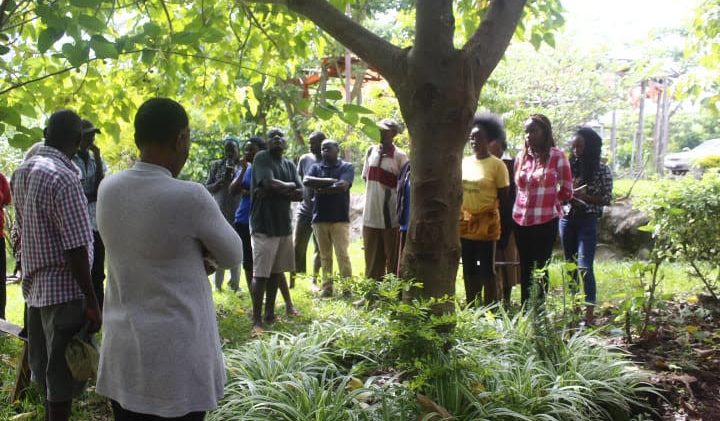The East Africa Permaculture Project was started in September 2018 to serve communities, children’s homes, and schools in East Africa – Kenya, Tanzania, Uganda and Rwanda. The permaculture ethics of Care for the Earth, Care for People and Care for the Future are at the heart of everything we do. These ethics inform how and why we support the people of East Africa. We understand that when the ethics of permaculture align, food security will occur.
For the East African people, regardless of their tribe, there is a requirement for any project undertaken to honour the African values of caring for their environment and everything in it, caring for themselves and others in their communities, and sharing what they have with each other. These are fundamental principles in African culture that have existed for centuries and are a perfect fit for a permaculture project.
The term permaculture combines the words permanent and culture, or permanent and agriculture. Permaculture is a holistic approach to designing environmentally sound land use and healthy, productive communities through the harmonious interrelationships of humans, plants, animals and the Earth.
A permaculture farm mimics nature by growing food, medicinal, and fuel and fiber plants in harmony with support plants (nitrogen fixers, nutrient accumulators, plants that attract beneficial insects or repel pests) to create a web of plants, insects and other organisms living together in a system that continually strengthens itself. The techniques and strategies used to implement permaculture vary depending on location, climate, and resources available. With very clear ethics and principles, permaculture is being used around the world to design thousands of thriving communities.
The Positive Impact
- Cancers are increasing all over East Africa, and this is attributable to the use of chemical fertilizers, with good organic food, and plenty of greens cancer rates will decrease
- Children suffer from ill health resulting in poor marks in school when their nutrition is poor, or even non-existent. With locally, grown organic food from a permaculture food forest their health improves, and school marks increase from good nutrition
- The cost of buying food in the marketplace is expensive and with Permaculture local communities become more self-sufficient
- Excess food can be sold commercially, adding to the health of the community and creating income sources for schools and communities
- School feeding programs means children are fed at school (often their only meal of the day) and with more food grown on school property, more students can be served
Donations for a project go towards tools, supplies, seedlings, plants, local labour, and fencing. Kindly consider donating to our Permaculture projects to serve the wonderful children and communities of East Africa…
To read more about our Initiative Lead Mark and our Field Lead Joash click here.
For more information contact our Initiative Lead:
Mark Holland: markholland@innovativecommunities.org
Joash Barasa: joashbarasa@innovativecommunities.org


